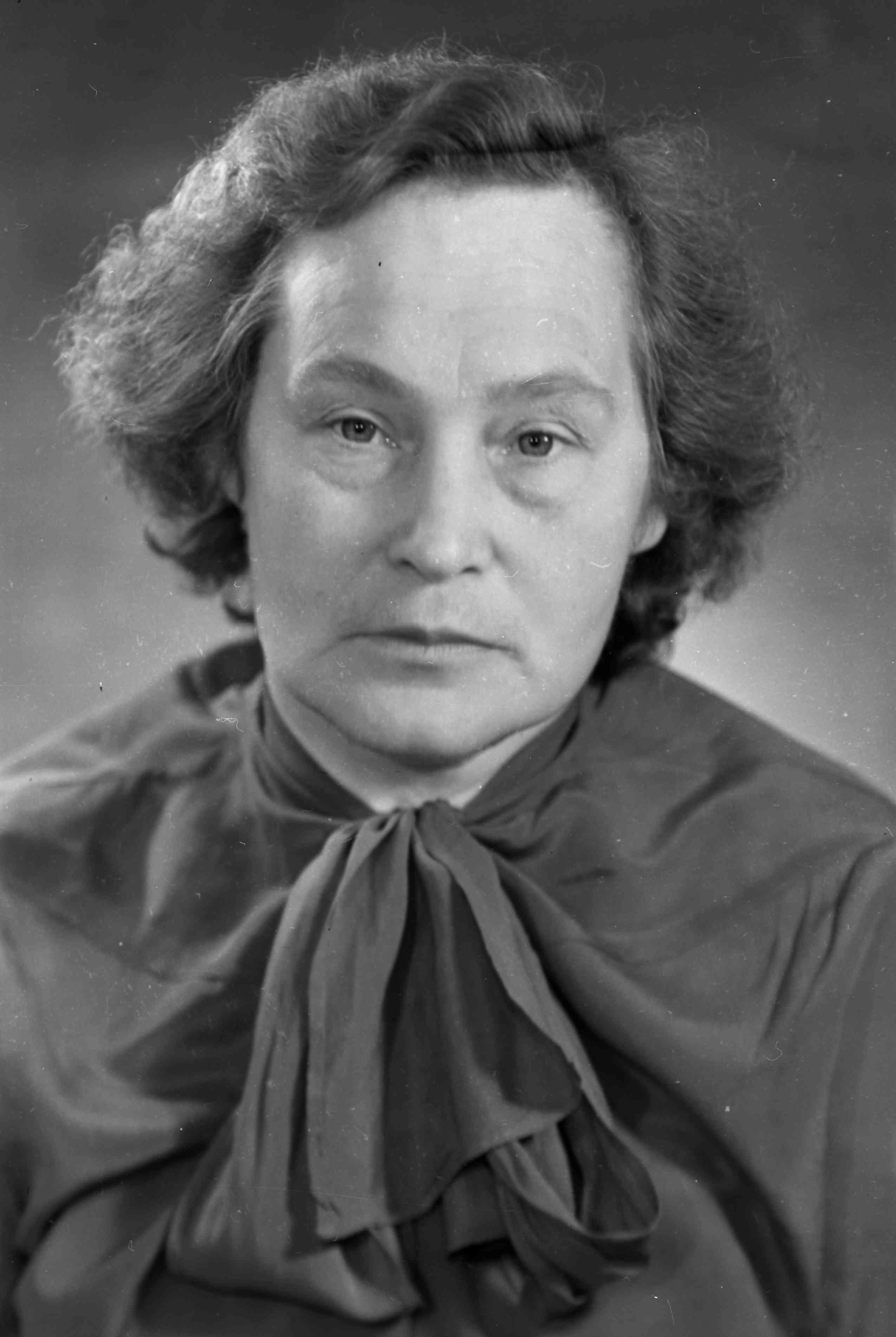
Muia Veetamm
Muia Veetamm (née Ellen-Aliide Ventsel, later Elts Ristmägi, 2. III / 17. II 1907 – 15. XII 1995) was a poet and artist, whose most important legacy is eloquent and simple nature poetry.
She was born on a tenant farm in Triigi parish, Harjumaa county, and attended primary schools in Tallinn, in 1925 and 1926 an evening gymnasium and from 1929 to 1931 the college of the Tallinn Adult Education Society. In her youth she earned a living from casual work. For a short while she was an auditor at the Pallas Art School. In addition to her lifelong interest in art she was active in choral singing and acting; from 1935 to 1942 she was an actor at the Tallinn Workers’ Theatre. In 1942 she was laid off from the theatre, and until 1948 she was a farm worker at Hageri. She spent her later life as a professional writer in Tallinn.
Muia Veetamm chose her authorial pseudonym on grounds of euphony, at the suggestion of the writer Aadu Hint. Veetamm was interested in folk-songs in the culture of Estonia and other nations. Apart from her own works, she often performed folk-songs in her literary evenings. Her first poems appeared in 1936 in the journal Eesti Noorus. Nature subjects permeated Veetamm’s poetry from the beginning to the end. As the author matured, the quality of her expression changed – besides the programmatic civic poetry there developed a density of ideas and imagery. In the late sixties the poet travelled in Uzbekistan and the Crimea. At the time she was cultivating oriental verse forms under the influence of the ancient poetic traditions of Central Asia. In her later years Veetamm wrote ballads of a folkloric kind, and philosophical verse meditations. The best of her nature lyrics is collected in the selection Vee ja liiva joonel (‘On the Line of Water and Sand’, 1974). Many composers have set Veetamm’s poems to music.
She wrote cheerful books of poetry for children about birds and animals, and published short prose with a penetrating grasp of child psychology. After the war she wrote the puppet play Kalevipoeg ja sarviklased (‘Kalevipoeg and the Horned Beasts’, staged 1949/1950) and a comedy set on a collective farm, Elu peremehed (‘Masters of Life’), the publication of which was banned in 1951. Veetamm translated poetry from Russian, Belarusian and Romanian. Her translations are included in numerous poetry anthologies.
L. P. (Translated by C. M.)
Books in Estonian
Poetry
Silma ja südamega. Tallinn: Ilukirjandus ja Kunst, 1949, 118 lk.
Sügisest. Poeem. Tallinn: Tallinna Riiklik Tarbekunsti Instituut, 1949, 25 lk.
Matka mälestusi. Tallinn: Eesti Riiklik Kirjastus, 1955, 128 lk.
Pill ja peegel. Tallinn: Eesti Riiklik Kirjastus, 1959, 107 lk.
Rajad ja uksed. Tallinn: Eesti Raamat, 1968, 104 lk.
Vee ja liiva joonel. Luuletusi aastaist 1940–1973. Tallinn: Eesti Raamat, 1974, 207 lk.
Põdrakanepist puri. Luuletusi ja ballaade. Tallinn: Eesti Raamat, 1982, 50 lk.
Videviku virved. Tallinn: Eesti Raamat, 1985, 95 lk.
Tunamull’ne. Tallinn: Eesti Raamat, 1992, 63 lk.
Children’s poetry
Sulepallid. Laule ja mõistatusi. Tallinn: Eesti Riiklik Kirjastus, 1956, 75 lk.
Orav Rõõmuraas-käbikuningas. Laule oravast ja muust looma- ning linnurahvast. Tallinn: Eesti Riiklik Kirjastus, 1958, 49 lk.
Kuldnokk-Kullanokk. Väikelastele. Tallinn: Eesti Raamat, 1984, 32 lk.
Kevadest kevadeni. Tallinn: Eesti Raamat, 1987, 41 lk.
Prose
Õied ja juured. Lugusid kasvatuslikel teemadel. Tallinn: Eesti Riiklik Kirjastus, 1962, 184 lk.
Tutt ja tops. Jutustus nooremale koolieale. Tallinn: Eesti Raamat, 1979, 175 lk.



